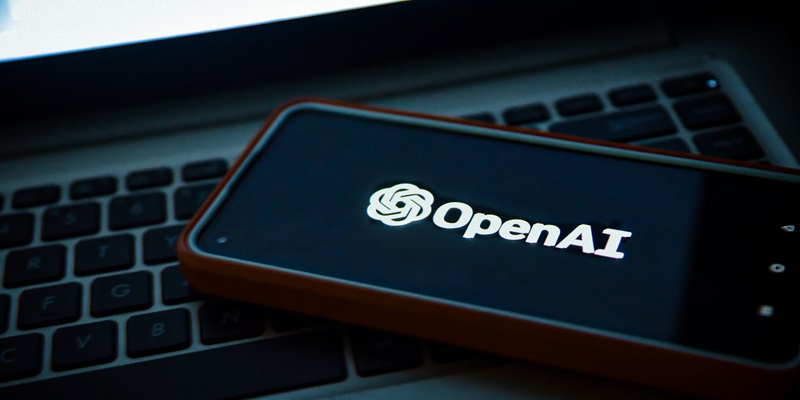In an age dominated by rapid technological change and the widespread digitization of daily life, cybersecurity is an ever-more critical domain. GenAI is poised to revolutionize creativity, propelling AI from a supporting role to a lead performer. However, the potential for misuse by hostile states looms large, a concern echoed by industry giants Microsoft and OpenAI. These warnings highlight GenAI’s dual nature—it’s a boon for innovation but also a potential weapon in cyber warfare.
Artificial intelligence is becoming increasingly sophisticated, with GenAI poised to unlock novel avenues for human creativity. Nonetheless, the proliferation of such technology bears inherent risks. Microsoft and OpenAI have voiced concerns about the exploitation of GenAI by adversarial nations, underscoring a potentially grave cybersecurity challenge.
Consequently, the manipulation of GenAI by antagonistic actors could have serious repercussions for national security. This stark reminder from leaders in the AI field underscores the dual character of technological progress—it can both inspire and imperil. As a result, there is a pressing need for vigilant measures to safeguard these powerful AI systems. The onus is on not just these companies but also on national defenses and regulatory frameworks to ensure that the fruits of AI innovations are not weaponized against the societies they were meant to benefit.
The Rise of GenAI in Cyber Espionage
Generative AI’s ability to create new content that can pass as human-generated has far-reaching implications. A boon for creativity and efficiency, these algorithms are equally potent in the wrong hands. The United States, its allies, and interests are not insulated from these threats. Microsoft and OpenAI report that rivals are embracing GenAI to craft intricate and compelling disinformation campaigns, phishing operations, and even deepfakes capable of deceiving biometric security measures.
The expressed concerns go beyond fake news or manipulated media. The potential for undermining national security is real when AI-fueled cyberattacks could lead to the bypassing of secure channels, impersonation of trusted officials, or theft of sensitive data. The applications for espionage and sabotage are profound, with adversaries capable of causing severe disruptions without ever physically stepping foot on US soil.
Microsoft’s Insights on Early-Stage Threats
Amid the concerns, Microsoft’s cybersecurity unit sheds some light on the narrative. The current GenAI-related threats are identified as being in the inception phase. Although this nascency presents its own set of dangers, it also offers a window for prevention. The earlier the detection of these AI-powered tools in cyberattacks, the more effectively countermeasures can be deployed.
As a frontline defender, Microsoft emphasizes collaborative participation with OpenAI in pioneering the surveillance and analysis of these threats. The duo’s efforts are not just about warding off immediate dangers; they are crucial to understanding the capabilities and intentions of adversaries, which in turn informs the strategic development of future countermeasures. Effective collaboration here is not merely reactive but anticipatory, charting the course of cyber defense in a world proliferated by AI-driven threats.
Cybersecurity Fundamentals in the AI Era
The advent of AI-driven threats does not negate the fundamental practices of cybersecurity—it reaffirms them. Microsoft and OpenAI’s guidance harkens back to the bedrock of digital defense. Multi-factor authentication, stringent user access protocols, and regular system audits continue to be the cornerstones of a robust security framework. In an AI-centric world, these methods are even more pivotal.
AI technology producers are on the hook for integrating potent security features from the ground up. The advent of GenAI in cybersecurity does not wholly reinvent the wheel but reinforces the need to produce a secure wheel in the first place. The best practices for AI defense weave traditional security wisdom with an understanding of AI’s unique vulnerabilities, creating a hybrid strategy agile enough to adapt to continuous technological evolution.
A Collaborative Approach to Combating AI Misuse
Microsoft and OpenAI have joined forces to tackle the growing misuse of AI in cybersecurity, underscoring the crucial need for collective vigilance. This collaborative effort harnesses their combined expertise to preempt and neutralize the threats posed by AI’s malevolent applications.
As part of their strategy, they constantly refresh defense mechanisms, improve predictive algorithms, and enhance surveillance for irregularities. This unity not only strengthens their immediate response capabilities but also allows them to stay ahead in the cybersecurity race.
Their partnership exemplifies how continuous adaptation and resource-sharing can lead to more effective countermeasures against the misuse of advanced technologies like GenAI. By leveraging AI against its own potential threats, Microsoft and OpenAI establish a proactive and dynamic barrier, vital for the digital safety of our increasingly interconnected world.
Confronting the Dual Nature of AI in Cybersecurity
As AI applications expand, the technology’s dual nature as both a boon and a risk demands our attention. Conversations about AI in the realm of cybersecurity must account for AI as a tool for both defense and offense. Protecting AI systems from exploitation is just as crucial as leveraging them to defend against traditional cyber threats. As much as AI empowers developers, creators, and businesses, it emboldens attackers with new vectors for carrying out their objectives.
The intertwinement of AI with digital infrastructure necessitates the development of a nuanced, AI-specific security strategy. Addressing the threat means looking at AI tools with a discerning eye, acknowledging their potential for misuse, and preparing for the eventuality that they might become compromised. The safeguarding of AI technologies is becoming an indispensable facet of modern cybersecurity endeavors, shaping the future of how digital protection is understood and enacted.
In closing, while Microsoft and OpenAI’s warnings present a sobering view of the cybersecurity landscape, they also forge a path of proactive and adaptive defense. As our reliance on AI grows, the collaborative, innovative, and foundational approaches to cybersecurity suggested here serve as a blueprint to navigate the complexities of a world where AI shapes not just our potentials but also our vulnerabilities.

